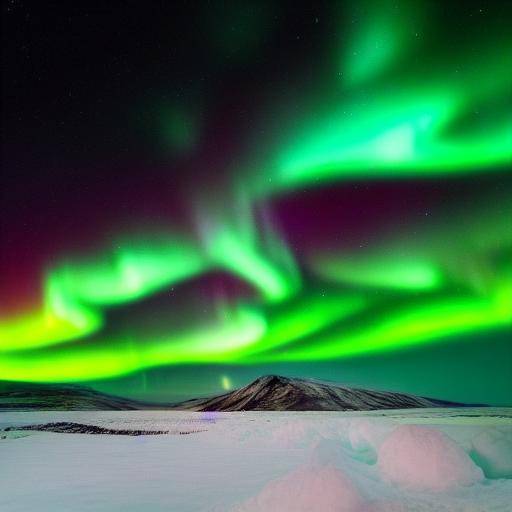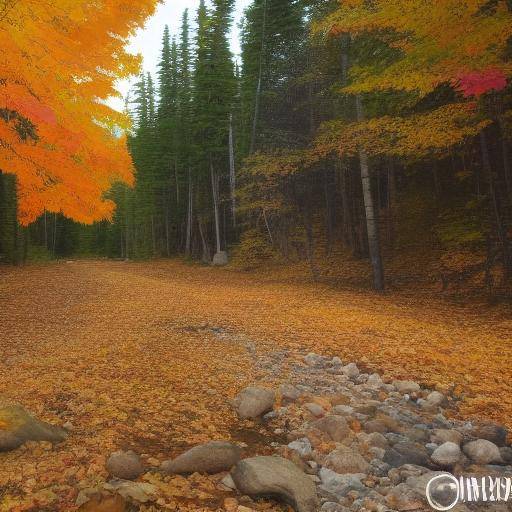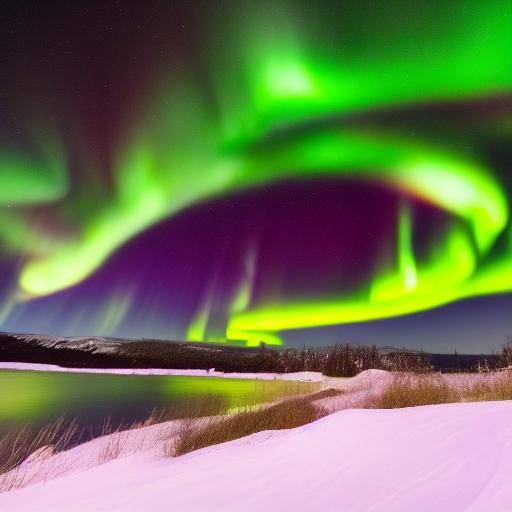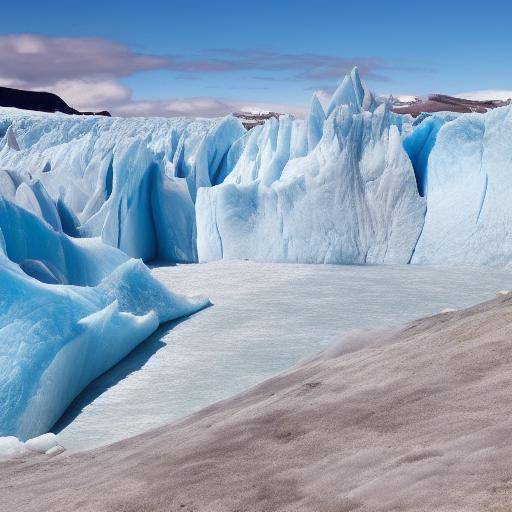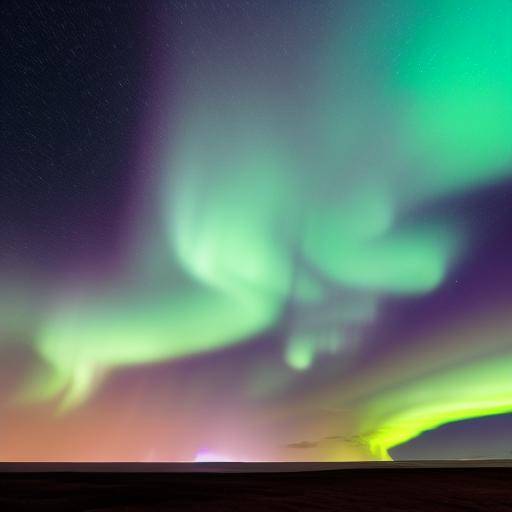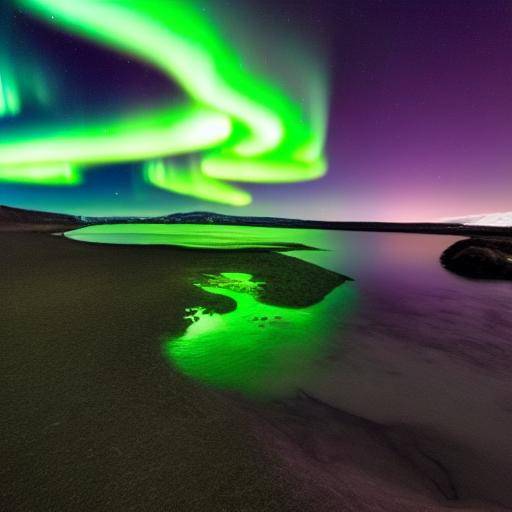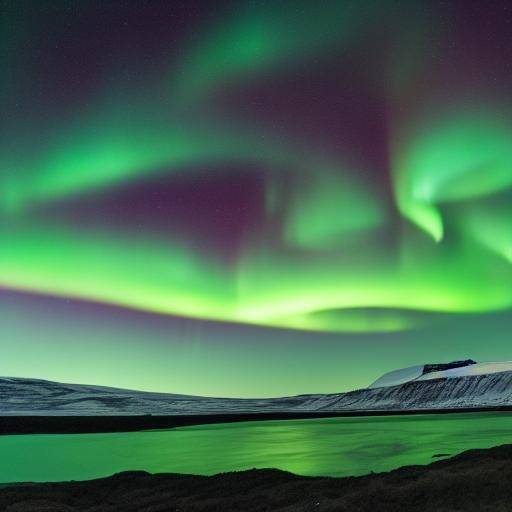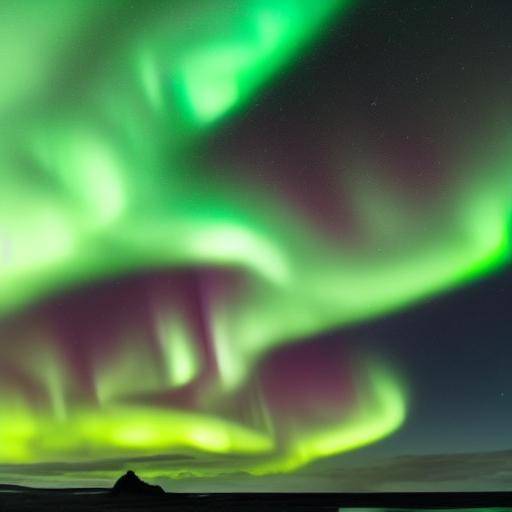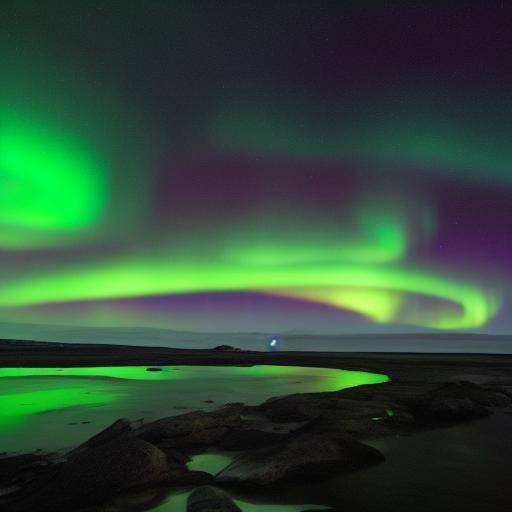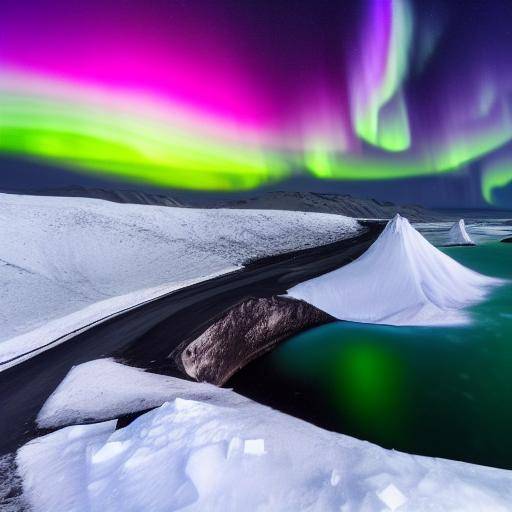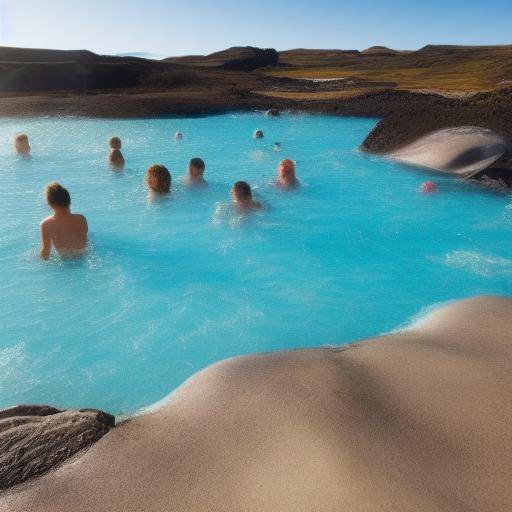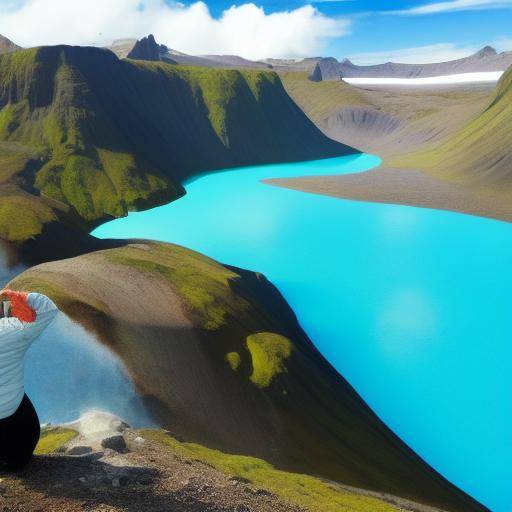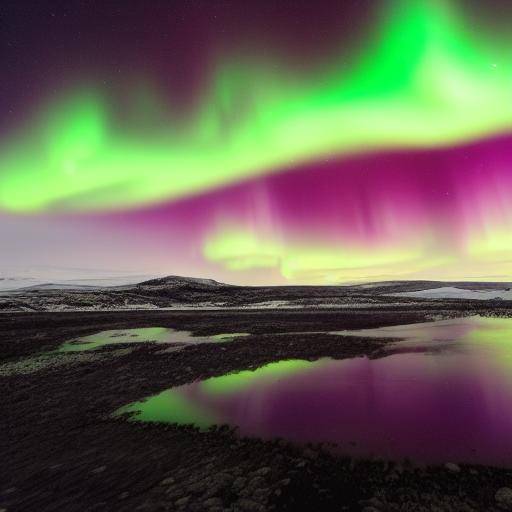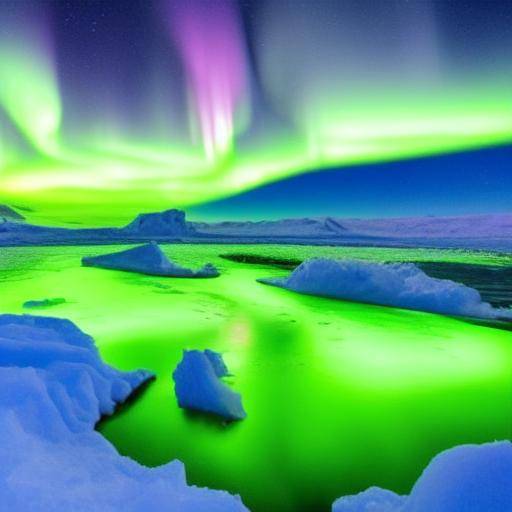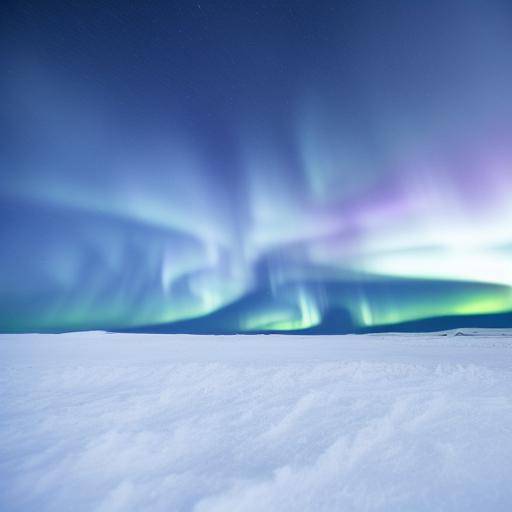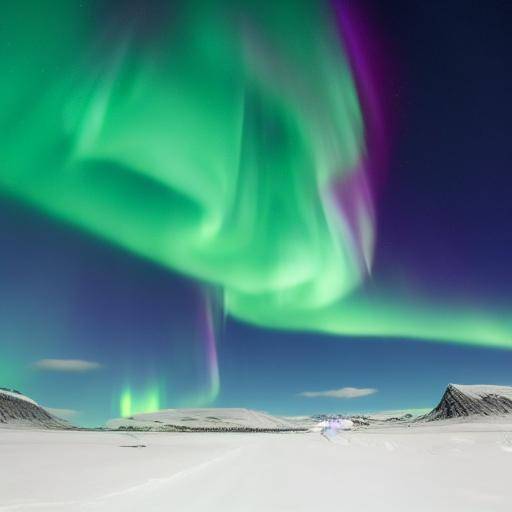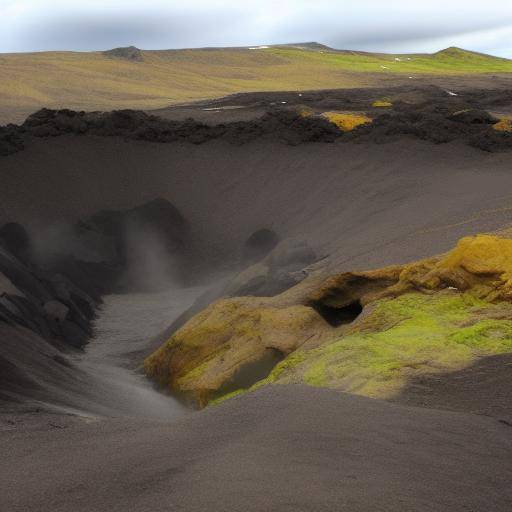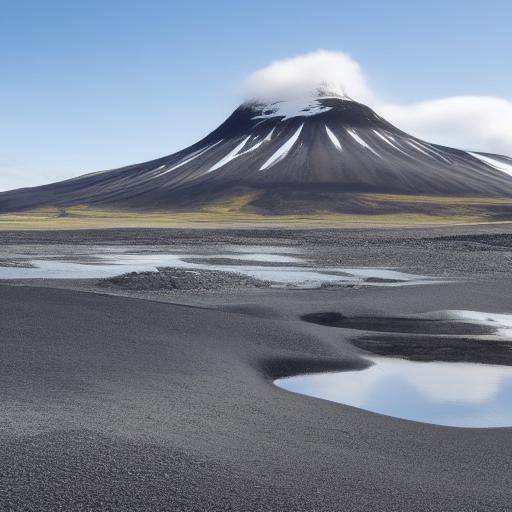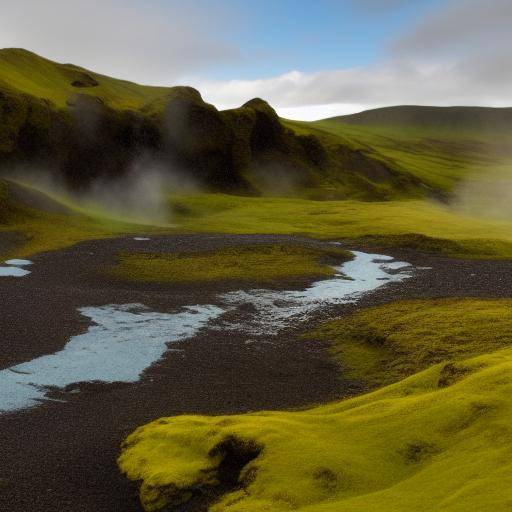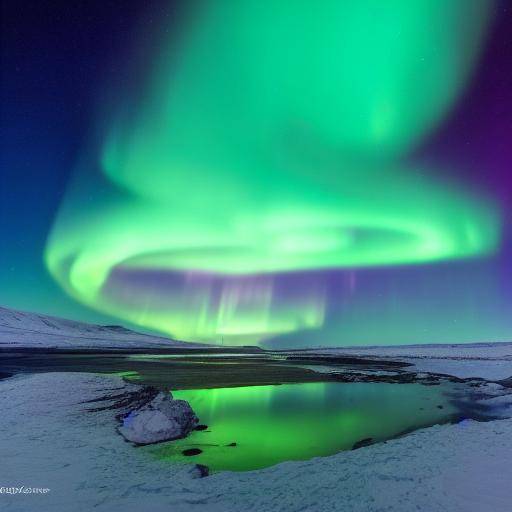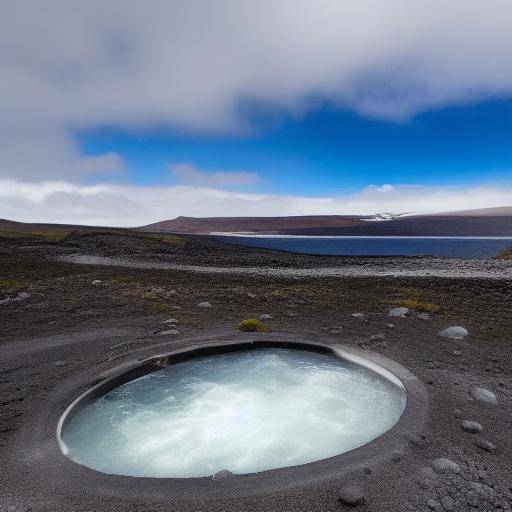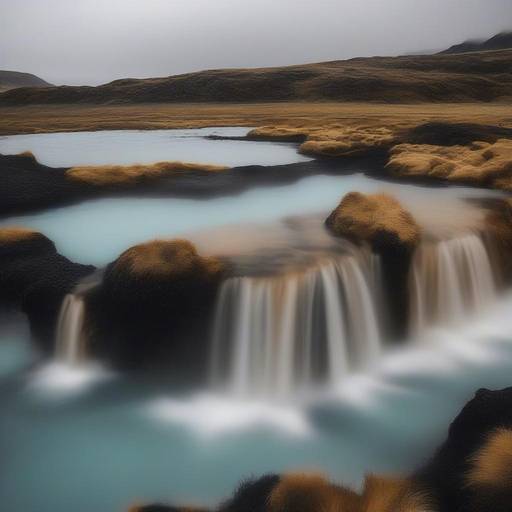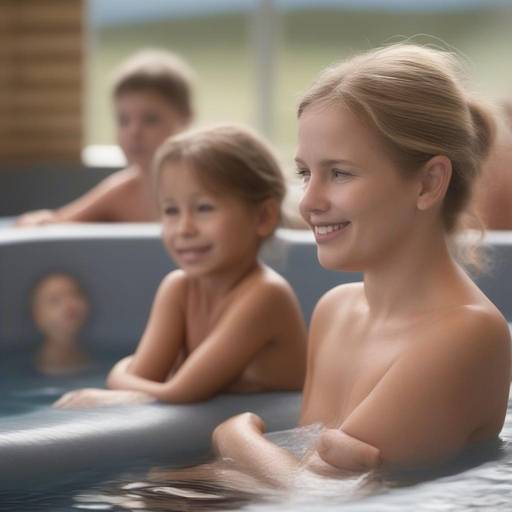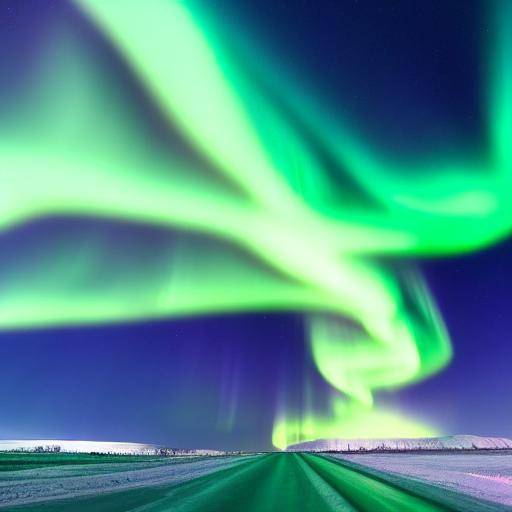
Winter in Iceland is a magical season full of unique natural phenomena, being the boreal auroras one of the most captivating shows offered by this Nordic country. In this article, we will explore not only the impressive boreal auroras, but also the Arctic nature of Iceland and all that this destination has to offer during the winter. From the history and science that surrounds the northern lights, to the practical advice to witness them, this complete guide will reveal the beauty and magic of Iceland in winter.
Introduction
Winter in Iceland is a time of astonishment and mystery, where the darkness of the night is illuminated by the brightness of the northern lights. In addition to this heavenly phenomenon, the country offers a variety of natural wonders that make Iceland a truly unique destination. From geysers to glaciers, through waterfalls and lava fields, the diversity of the Arctic nature of Iceland is impressive. In this article, we will explore in detail the beauties that make Iceland in winter an unforgettable destination.
History and Background
The Aurora boreal has fascinated humanity since time immemorial. The ancient Nordic cultures saw the auroras as valkirias, the mythical warrior maidens riding through the skies. These heavenly shows have also been the subject of scientific study for centuries. From the theories of ancient astronomers to modern research, the aurora boreal has challenged and marveled mankind throughout history.
In the context of Iceland, boreal auroras have significant cultural and historical relevance. Icelanders have forged a deep connection with these phenomena, including integrating them into their legends and traditions. Over time, science has unraveled the mysteries behind the auroras, providing a deeper understanding of these luminous shows.
Detailed Analysis
The beauty of the boreal auroras goes beyond the visual, as they also have an impact on nature, science and culture. These phenomena affect the terrestrial magnetic fields and generate light waves that awaken a range of emotions in those who are fortunate to witness them. From a scientific perspective, the boreal aurora challenges the conventional understanding of the light and the Earth's atmosphere, providing valuable knowledge to space and atmospheric research.
On the other hand, Iceland's relationship with its arctic nature is a testimony of resilience and adaptation. Icelanders have learned to live in harmony with an environment that can be challenging and, at the same time, wonderful. From the use of geothermal energy to the conservation of fragile ecosystems, Iceland represents a model of sustainability and environmental care in an increasingly aware world of responsibilities towards nature.
Exhaustive examination
Compared to other arctic regions, Iceland's boreal auroras offer a unique experience due to their combination of glacial landscapes and volcanic activity. The variety of colors and shapes that unfold in the Icelandic sky during the winter nights is simply spectacular. With a range of excursions and ideal locations to witness the auroras, Iceland stands out as one of the main destinations for lovers of natural phenomena.
In addition, Iceland's arctic nature offers opportunities to explore unique ecosystems, observe wildlife adapted to extreme conditions and enjoy outdoor activities ranging from trekking in glaciers to relaxing in thermal waters. This combination of pristine nature and adventure makes Iceland an incomparable destination for those who seek to experience the beauty and majesty of Arctic nature.
Comparative analysis
When compared to other Arctic locations, Iceland stands out for its accessibility and the variety of activities it offers during the winter. While in other places extreme temperatures can limit travel options, Iceland has a well-developed tourist infrastructure that allows visitors to explore Arctic nature in a relatively safe and comfortable way. This combination of ease and adventure makes Iceland an attractive destination for a wide range of travelers.
Practical Tips and Accessible Tips
For those who wish to witness the boreal auroras in Iceland, it is essential to plan ahead and be prepared for the changing climate conditions. Choosing the right time of the year, wearing proper clothes and looking for optimal locations for observation are just some of the important considerations. Moreover, making the most of Iceland ' s arctic nature implies being informed about the possibilities and limitations of outdoor activities, as well as respecting the natural environment.
Perceptions of Industry and Expert Reviews
Experts on tourism and environmental conservation recognize Iceland as a global destination, not only for its natural shows, but also for its commitment to the sustainability and preservation of the natural environment. The views of the experts highlight the importance of responsible tourism and the need to balance the promotion of destinations with the conservation of their natural resources. This comprehensive approach to sustainable tourism places Iceland as an example to follow in the field of ecotourism.
Case Studies and Applications in Real Life
Iceland's arctic nature has inspired photographers, scientists, travellers and artists from around the world. Through case studies and actual testimonies, we can see how Iceland's beauty in winter has significantly impacted the lives and work of those who have had the opportunity to experience it. From spectacular images to scientific discoveries, the stories of those who have explored the Arctic nature of Iceland provide a unique window to the importance of preserving and sharing these natural treasures.
Future Trends and Predictions
As sustainable tourism gains global relevance, the demand for authentic experiences in natural environments such as Iceland is expected to continue to grow. Trends indicate an increase in the environmental awareness of travelers and a higher assessment of destinations that promote conservation and respect for nature. In this sense, Iceland is in a privileged position to continue attracting conscious travelers who seek to connect with nature responsibly and enrichingly.
Conclusion
The beauty of Iceland in winter goes beyond the spectacular boreal auroras. Through the exploration of its arctic nature, its impressive landscapes and its commitment to sustainability, Iceland is revealed as a destination that arouses admiration and respect. With the combination of unique natural phenomena and a rich diversity of experiences, Iceland in winter represents an unforgettable journey that merges the wonder of the aurora boreal with the majesty of Arctic nature.
Frequently asked questions
When is the best time to see the Bo Aurorareal in Iceland?
The best time to witness the Aurora Boreal in Iceland ranges from late August to mid-April, with the winter months offering ideal conditions due to the longest nights and the clear sky.
What are the best locations to observe the northern lights in Iceland?
Some of the best locations to witness the boreal auroras in Iceland include Thingvellir National Park, Reykjanes Peninsula and the area around the city of Akureyri.
What clothes and equipment are recommended to witness the boreal auroras in Iceland?
It is essential to wear warm, waterproof and windproof clothing, including gloves, cap and cold-resistant boots. In addition, having a high quality camera is recommended to capture this wonderful phenomenon.
What are some outstanding activities to experience Iceland's arctic nature in winter?
Among the most outstanding activities are the baths in thermal waters, excursions to glaciers, walks through snowy landscapes, whale sightings and wildlife observation in their natural habitat.
Is it possible to witness the Aurora Boreal from the capital of Iceland, Reikiavik?
Sometimes, when weather conditions and solar activity are exceptional, boreal auroras can be visible from Reikiavik. However, it is advisable to get away from the light pollution of the city to get the best experience.
How does Icelandic culture relate to boreal auroras?
The northern lights have been a source of inspiration for Icelandic culture over the centuries. They are an integral part of the legends and the cosmovision of the Icelandic people, infusing the boreal auroras with a transcendental significance.
With the abundance of natural wonders and heavenly shows, Iceland in winter offers a unique experience that captivates and inspires visitors. From the mysterious boreal auroras to the diversity of Arctic nature, this Nordic country radiates a magnetism that endures in the memory of those who have the fortune to contemplate it.

